Why were cats so loved and revered in ancient Egypt?
The inhabitants of ancient Egypt treated many animals with great respect, but cats have always been especially important to them. The Egyptians even appointed separate servants to take care of them, and if a cat died, its remains were embalmed and buried in sacred chambers along with people.
How were cats able to conquer the ancient world and what has become of the cat cult in Egypt now? Read in our material.
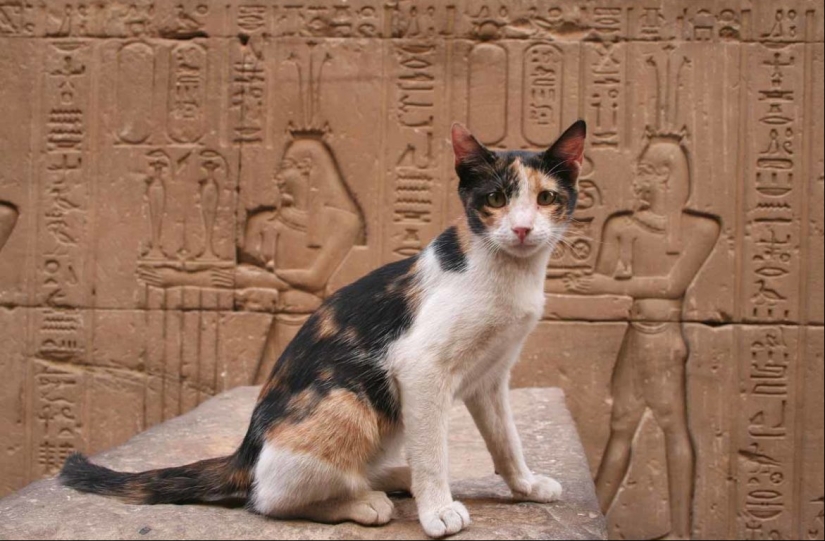
Once upon a time cats were not as lazy and carefree as they are today. On the contrary, they looked more like the agile and intelligent predators that their ancestors were. In Egypt, at that time, there was an acute problem with rodents – they massively destroyed crops and spread dangerous diseases. Therefore, when farmers once noticed that cats deftly hunt mice, the attitude towards these animals changed dramatically.
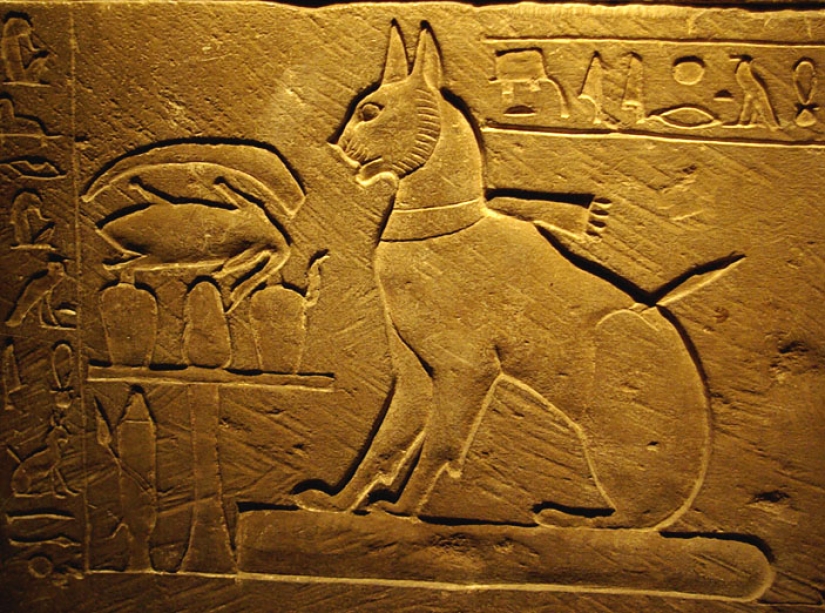
The Egyptians began to lure cats to their farms with the help of fish and other goodies. And the cats didn't mind, because next to people they were guaranteed a stable source of water and food. So it turned out that cats caught annoying mice, and people fed and took care of them as a sign of gratitude.
Cats in ancient Egypt were considered full members of the family and society as a whole. Moreover, sometimes their lives were valued even higher than human ones. For example, during a fire, the first thing people did was not run out of the house and put out the fire, but surrounded the cats and saved them from the flames. For the deliberate murder of a cat, the death penalty was imposed, for unintentional - at best, the payment of a large fine.
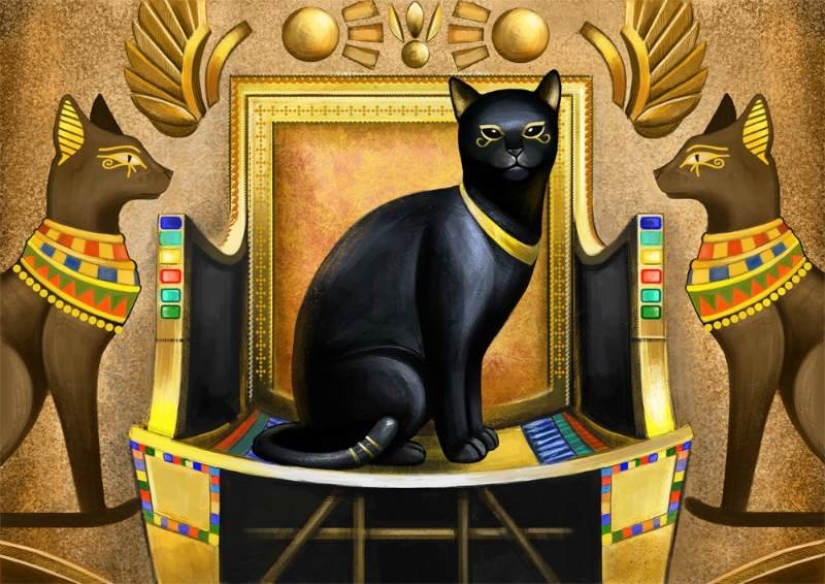
The Egyptians appointed individuals to take care of these animals, and such a position was considered prestigious and then inherited. Domestic cats lived in luxury, ate the best foods and basked in the care that modern cats can only dream of.
The Egyptians also had a strange ritual of expressing their deepest reverence for these animals. Herodotus described him as follows: "After praying to God ... they cut their children's entire head, half or only a third of the head, and then weigh the hair for silver. As much as the weight of silver will pull the hair, so much they give to the attendant, and she for this cuts fish into food for animals."
It is also impressive how the Egyptians treated the dead cats. They were embalmed and buried in sacred chambers on a par with people, and Pharaoh Sheshonk I at one time even built an entire city, which became a place of worship of the goddess Bastet. It was thanks to her that the cult of cats was born in ancient Egypt.
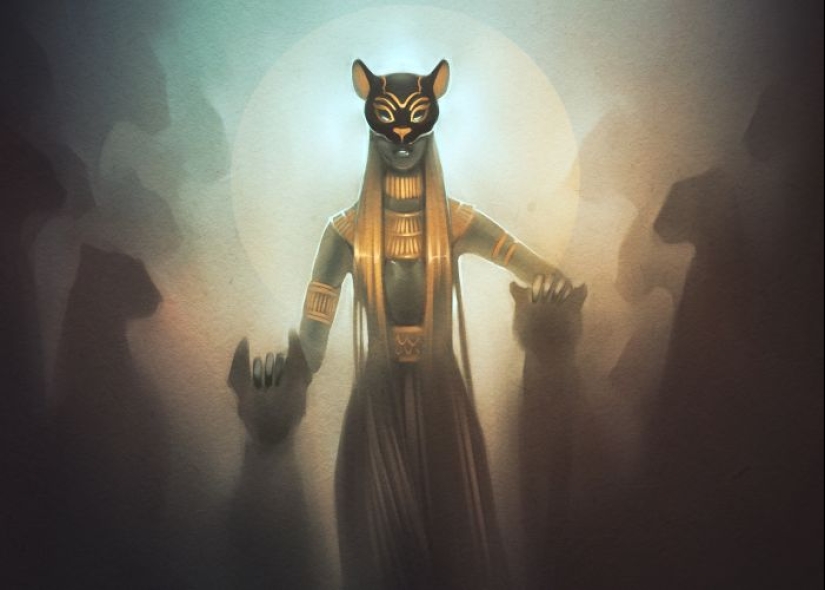
Bastet or Bast (another pronunciation of her name) was considered the daughter of the god Ra and the goddess Hathor. They, in turn, were one of the main deities of ancient Egypt. Bastet was associated with the sun, fertility, female beauty, joy and fun. She had two incarnations – a woman with a lion's head (aggressive) and a cat's (softer and more docile).
The Egyptians elevated Bastet to the rank of a national deity. And along with this, cats began to be revered, with which the goddess of fertility was identified. For example, people shaved their eyebrows in memory of dead animals and arranged mourning lasting 70 days.
There are many references to cats in Egyptian culture. They were depicted on papyri, ostracons - clay shards for records, on the walls of tombs, and also made figurines in the shape of cats, frescoes and so on. For the Egyptians, this animal was truly special.
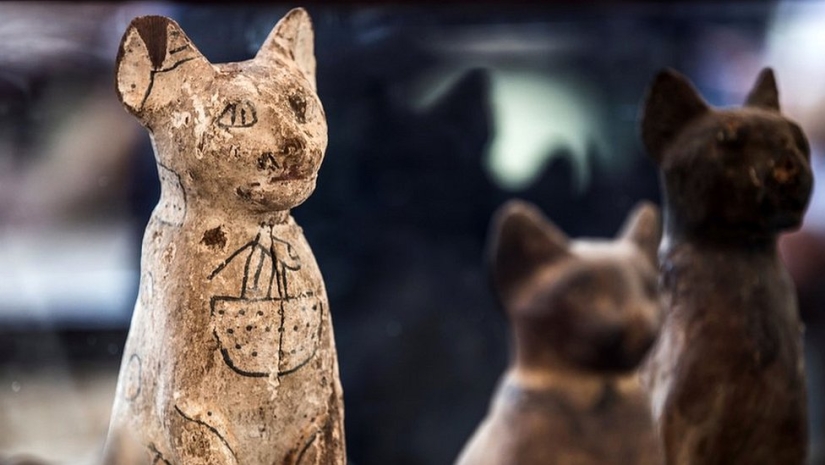
For a long time it was believed that Egypt became the place of domestication of cats, but later archaeologists found evidence that this happened in Cyprus. Nevertheless, ancient tombs with these, as the Egyptians believed, sacred animals are still sometimes discovered in Egypt.
One day an Egyptian peasant stumbled upon a tomb in which there were more than 80 thousand mummified cats!
According to legend, one day the Persians decided to take advantage of the special attitude of the Egyptians to cats. During the attack on the city of Pelusium, they tied these animals to their shields, and as a result, none of the enemy's soldiers could strike at them. The city surrendered without a fight, and the Persian king Cambyses II, who came up with this cunning plan, founded the 27th dynasty and eventually conquered Egypt.
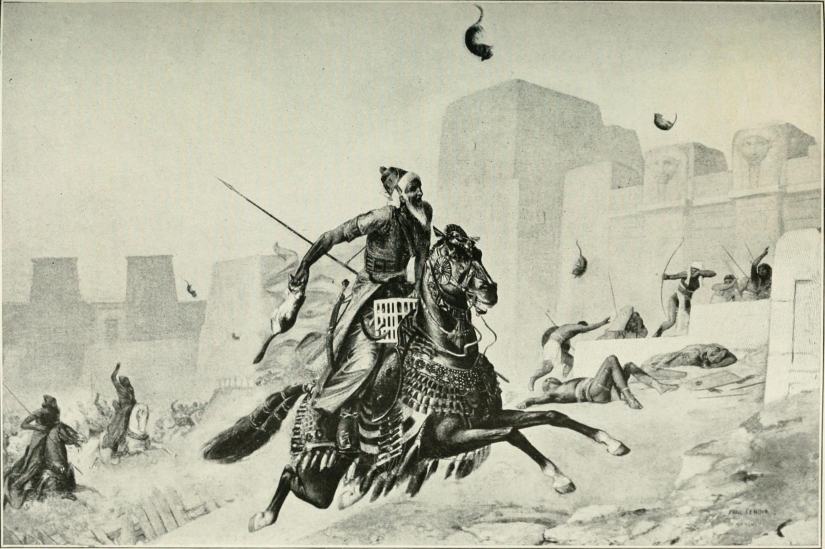
When the ancient state became one of the numerous provinces of the empire and lost its former power, the Egyptian deities also faded into the past. Over time, the cult of the goddess Bast, along with other manifestations of paganism, was banned at the official level. And although cats have remained pets, faith in their divinity has faded.
Keywords: Animals | Religion | Cats | History | Egypt | Cult | Antiquity | Interesting | Ancient world
Post News ArticleRecent articles

It's high time to admit that this whole hipster idea has gone too far. The concept has become so popular that even restaurants have ...

There is a perception that people only use 10% of their brain potential. But the heroes of our review, apparently, found a way to ...
Related articles

Many believe that cats are essentially idlers, spending their days in idleness, games and gluttony. But in fact this is not the ...

These artists love cats, but also masterfully draw them, often complementing funny and life signatures. Meet! --> Russian ...

The age of breeding" improvements " of pure breeds has turned once healthy dogs into deformed animals. There is an opinion that ...

New Year's is a time to surprise and delight loved ones not only with gifts but also with a unique presentation of the holiday ...